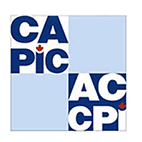Canada is a top destination for international students with big dreams and aspirations. If you are one of them, you need to get a Canada study permit to be allowed to study in the country. From the application to approval, the whole process can be a bit overwhelming at first, but if you have all your ducks in a row, you can prevent costly mistakes and delays.
Overview of the Canadian Study Permit
A study permit for Canada is an official document that allows foreign nationals to study at designated learning institutions (DLIs) in the country.
Students have to apply for a permit before they travel. Please note that a student permit is not the same as a student visa – it doesn’t let you enter Canada; it only permits you to study in the country. You will be issued a student visa if your student permit is approved.
The time it takes to process a study permit application can vary based on different factors, including the applicant’s country of origin, the type of application, and how complete the application is. On average, online applications take 3 to 17 weeks to process, while paper applications take 4 to 20 weeks.
Delays in collecting biometrics, medical exams, police certificates, or other documents can affect processing time. Applicants can check the current processing times for their country and application type on the official website of Immigration, Refugees and Citizenship Canada (IRCC).
The processing time can also be reduced by applying through the Student Direct Stream (SDS), which is a faster way to get a study permit for eligible students from certain countries. The SDS processing time is usually 20 calendar days or less.
- Applicants should apply for a study permit as early as possible, preferably at least six months before the start date of their program.
- Applicants should also consider the time it takes to get a letter of acceptance from a designated learning institution (DLI) in Canada, which is required for a study permit application.
- Applicants should also prepare for their arrival in Canada after they receive their study permit approval.
- They may need to apply for a visitor visa or an electronic travel authorization (eTA) to enter Canada, depending on their country of citizenship
- They should also follow the travel restrictions and quarantine requirements related to COVID-19.
Canada Study Permit Timeline
Here is a possible step-by-step timeline for the Canada study permit process:
Here is the Canada Study Permit process timeline in detail:
Gather The Required Documents
You need to meet the following criteria to be eligible for a Canada study permit:
Travel Documents: This includes an authentic passport or other legal travel document.
Acceptance Letter: The letter must be from a Designated Learning Institution (DLI) to be valid for the study permit application process.
Proof of Financial Support: Provide proof that you have sufficient funds to do the following:
- Cover the fee for the first study year as per the DLI
- Cover all expenses for your first year of stay in Canada, along with accompanying family members
- Sufficient funds for transportation for themselves and accompanying family members from their country of origin to Canada.
- All required funds should be in liquid form, i.e., in an account owned by the student or main application, a close friend, relative, or spouse.
Medical Exam: A complete medical exam not only of the student but also any accompanying relative. The study permit application process will go faster if you take this exam before applying and submit the documents with the application.
Or you can wait for the notice for the medical exam after submitting the study application, but this will take longer. You need to submit the results within 30 days of receiving the request for the medical exam. Please note that the exam cost will depend on the panel doctor you visit – doctors authorized by Canadian Immigration to conduct medical evaluations for immigrants.
Criminal Record: In rare cases, you may be asked to acquire police clearance certificates to ensure you are not a threat to the country.
Supporting Documents: These documents differ from country to country, and they all have to accompany the study permit application. Check out the IRCC website for information.
Submit Biometrics
This includes your picture and fingerprints at a biometrics collection site once you receive a request for it after applying for the permit. You will receive a Biometrics Instruction Letter detailing these requirements, and you will need to pay an $85 fee when applying.
Depending on your home country, you may have to travel to another country for this or apply for a visa to submit biometrics to another country. If you are a US citizen or provided biometrics in the past decade, you are exempt from this step.
Get the Study Permit Approved
You will get a Letter of Introduction if your study permit is approved. Once you get it, submit it to the Canada Border Services officer when you land in the country. You will get your study permit in exchange at the border crossing or the airport.
Before leaving the officer’s desk, make sure the information on the permit is accurate and that it also states that you may work or may accept a job while working in Canada. If they aren’t mentioned on the permit, ask for them to be added. Otherwise, you cannot legally work in the country and may face deportation if you get a job.
Get a TRV or eTA
Once your study permit is approved, you will be given either a Temporary Resident Visa (TRV) or an Electronic Travel Authorization when you arrive in Canada. US citizens are exempt.
Multiple Study Visa Refusals Canada: How Immigrants Can Achieve Success
Canada Study Permit Exceptions
The following international students don’t need a permit to study in Canada:
Short-Term Students
You do not need a Canada study permit if the course or study program you are taking in the country is six months long or less. If they extend that duration, you need to acquire the permit before the six months have passed to be allowed to stay.
Minor Children
Children younger than 18 or 19 (depending on the age restrictions in their country of origin) do not require a study permit to get into a Canadian kindergarten, primary/secondary school, or preschool if they meet the following criteria:
- They are in the country with parents authorized to work or study there.
- Their family or they are refugees or refugee claimants.
Military Members
You may not require a study permit if you are a member of the armed forces in your country and are posted in Canada on active duty. However, if you wish to bring your family here to study, they will require work permits.

Study Visa Guidance by Licensed Experts
Need help?
If you wish to acquire a Canada study permit but don’t know where to start, consult with Elaar Immigration. Book an online appointment or a face-to-face meeting with one of our representatives. We have aided several foreign students in securing permits and can also guide you on the dos and don’ts to increase your chances of admission. Contact us today!









